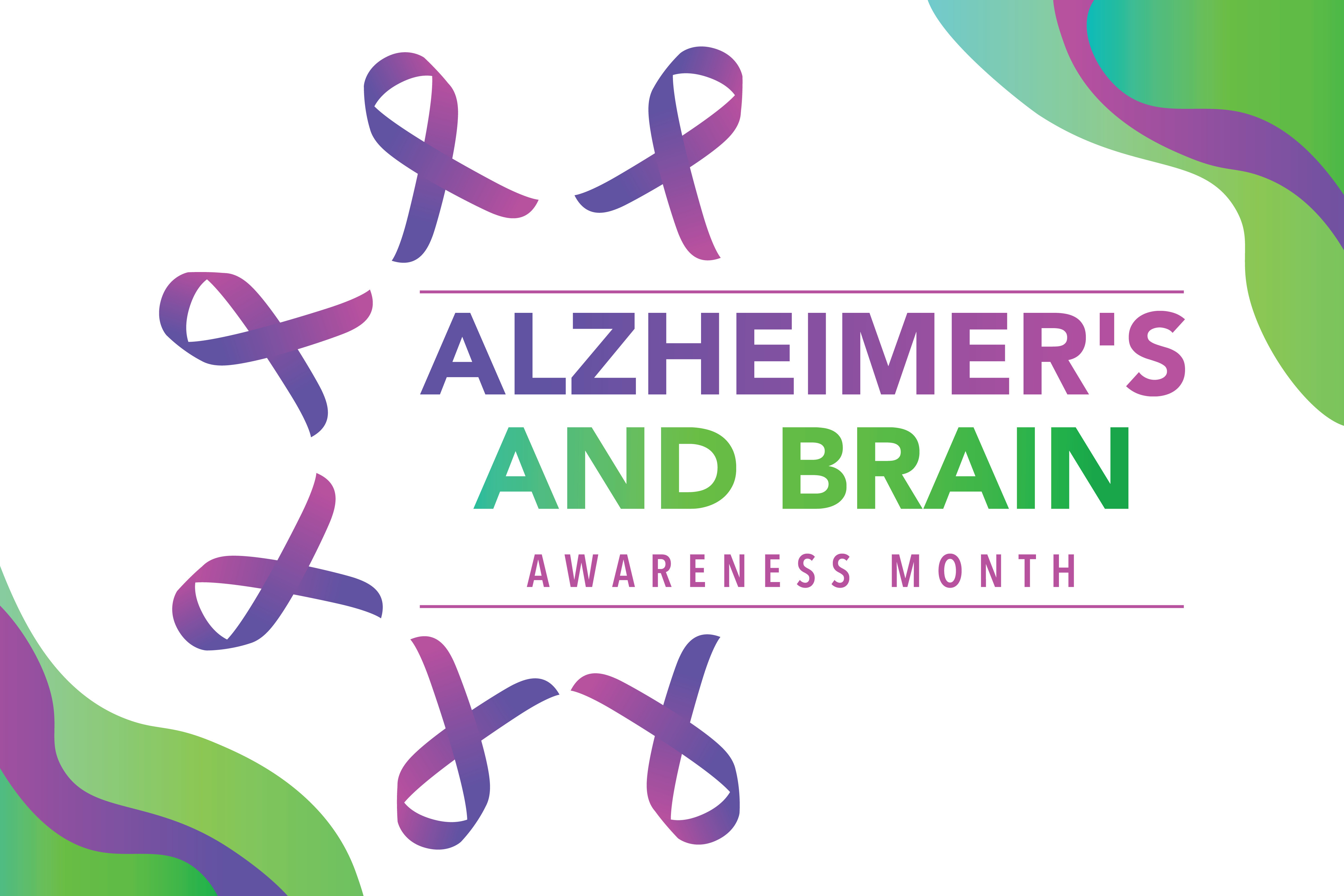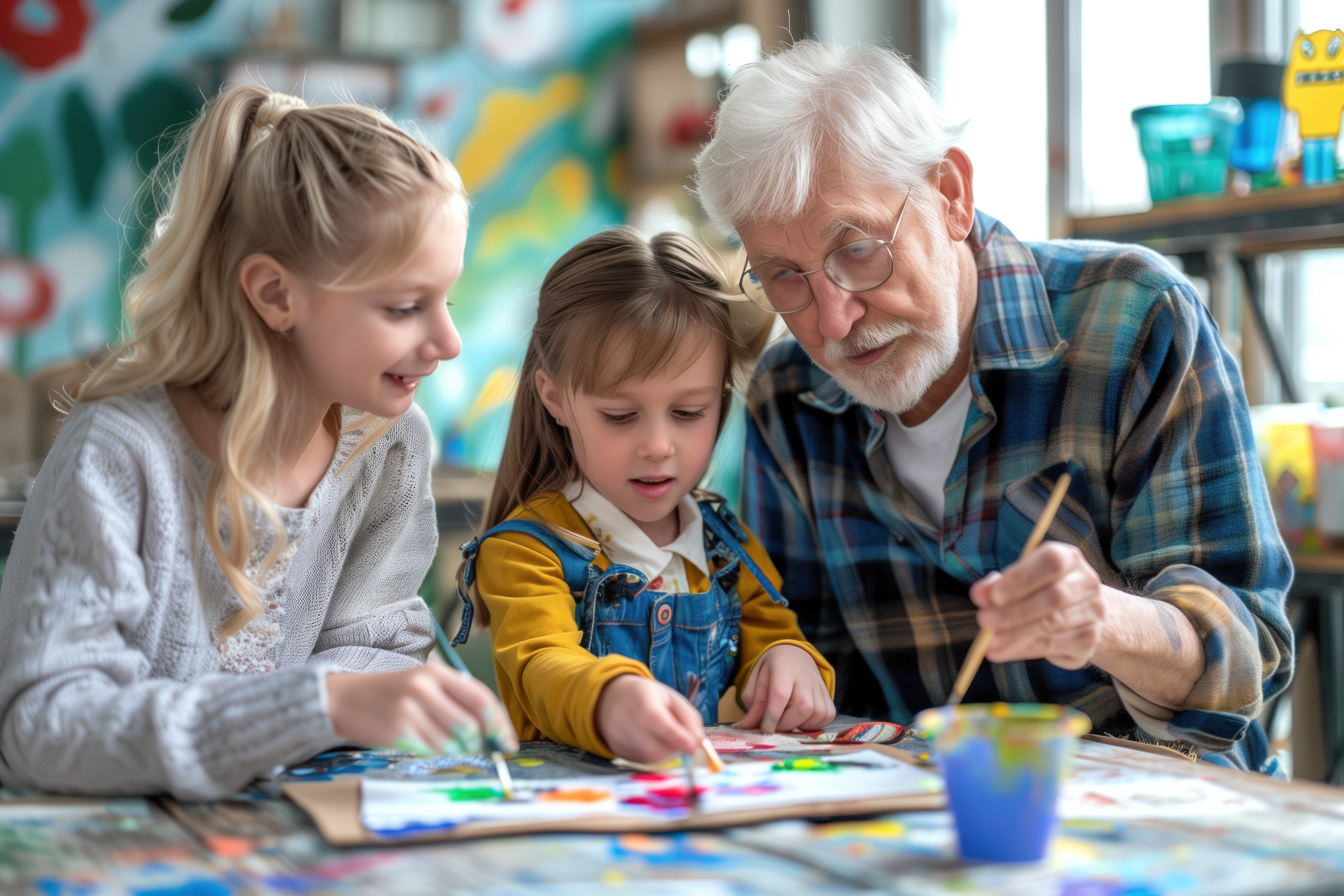


Agility and Efficacy: The Advantages of Evidence-Informed Dementia Training
In the dynamic field of dementia care, training programs need to be both effective and adaptable. Evidence-informed dementia training has emerged as a vital approach, offering significant advantages over traditional evidence-based programming. Let's delve into the benefits of evidence-informed dementia training, highlighting its agility and the superior outcomes it fosters in care settings.
Understanding Evidence-Informed Dementia Training
Evidence-informed training integrates the best available research evidence with clinical expertise and patient values. Unlike evidence-based training, which relies strictly on research findings often derived from controlled environments, evidence-informed training is more flexible. It allows for the incorporation of real-world clinical experiences and individual patient preferences, creating a holistic approach to dementia care.
The Advantages of Evidence-Informed Dementia Training
-
Flexibility and Adaptability
One of the primary strengths of evidence-informed training is its flexibility. Dementia care is inherently complex and variable, with each patient presenting unique symptoms and challenges. Evidence-informed training programs can quickly adapt to new research findings, emerging clinical practices, and individual patient needs. This agility ensures that care providers are always equipped with the most current and relevant strategies, fostering a more responsive care environment.
-
Enhanced Clinical Relevance
Evidence-informed training emphasizes the practical application of research findings. By incorporating the insights of experienced clinicians and the preferences of patients and their families, this approach ensures that the training is not only scientifically sound but also highly relevant to real-world practice. This relevance increases the likelihood that care providers will effectively implement what they learn, leading to better patient outcomes.
-
Patient-Centered Care
A significant benefit of evidence-informed training is its focus on patient-centered care. This approach recognizes the importance of tailoring interventions to meet the specific needs and preferences of individuals with dementia. By valuing patient and family input, evidence-informed training fosters more compassionate and personalized care. Studies have shown that such patient-centered approaches can significantly improve the quality of life for individuals with dementia and their caregivers (Kitwood, 1997; Brooker, 2004).
-
Rapid Implementation of Innovations
The agility of evidence-informed training allows for the rapid adoption of new innovations in dementia care. Traditional evidence-based models often require extensive time to gather, analyze, and apply new research findings. In contrast, evidence-informed training can quickly incorporate new insights and technologies, ensuring that care providers are always at the forefront of best practices.
-
Holistic Care Approach
Evidence-informed training promotes a holistic approach to dementia care. By integrating various sources of knowledge—research evidence, clinical expertise, and patient experiences—this training fosters a more comprehensive understanding of dementia. This holistic perspective helps care providers address not only the cognitive and physical aspects of the disease but also the emotional and social needs of patients.
Evidence-Informed Solutions
Evidence-informed dementia training offers a dynamic and comprehensive approach to dementia care. Its flexibility and adaptability allow for the continuous integration of new research and practices, ensuring that care providers remain equipped with the latest tools and knowledge. By emphasizing clinical relevance, patient-centered care, and the rapid implementation of innovations, evidence-informed training enhances the quality of care for individuals with dementia. Embracing this approach can lead to significant improvements in patient outcomes and overall quality of life.
In a field as complex and rapidly evolving as dementia care, the agility of evidence-informed training provides a crucial advantage. By blending the rigor of evidence-based research with the practical insights of clinical experience and patient values, this approach ensures that dementia care remains responsive, relevant, and effective.
If you'd like to learn how AGE-u-cate's evidence-informed programs can provide solutions to your dementia care and training challenges, please contact us today!
References:
- Kitwood, T. (1997). Dementia Reconsidered: The Person Comes First. Open University Press.
- Brooker, D. (2004). What is person-centred care in dementia? Reviews in Clinical Gerontology, 13(3), 215-222.

Boosting Brain Health: Insights from Brain Awareness Month, Alzheimer's Association, and Blue Zones
June is Brain Awareness Month, spearheaded by the Alzheimer's Association, and it's a crucial time to focus on maintaining and improving brain health. Understanding how to keep our brains healthy can help reduce the risk of neurodegenerative diseases like Alzheimer's. Integrating knowledge from research, global health phenomena like the Blue Zones, and resources from the Alzheimer's Association can provide us with a holistic approach to brain wellness.

Improving Client Service for Individuals with Dementia: Training Tips for Financial Institutions

Navigating the Turbulence: How to Make Airports Age and Dementia Friendly Amid Travel Chaos
Air travel is often riddled with unexpected challenges, and today’s story is no exception. As someone who thrives on learning by doing, I find myself in the midst of one of the most memorable travel misadventures of my life. It's no secret that flight delays have become increasingly common. If you’re fortunate enough to experience a flight that departs and arrives on time, without lost baggage or discomfort, consider yourself luck, right?
This particular journey was anything but smooth. Just ten minutes before our scheduled boarding, the gate agent announced that our flight crew was still en route from the hotel, leading to an initial delay. Her suggestion to go find a restaurant for breakfast, take a walk, or shop should have been a clue about the long wait ahead. I noted her particular words: it was not grab breakfast - it was rather "go find a restaurant and have breakfast" - big difference in time!
Then we Moved to the Automated Updates...
As time ticked by, automated updates pushed our departure time by 30-minute increments, extending our delay to an excruciating 6.5 hours without any human announcements. The frustration among passengers was palpable as we felt trapped in a relentless cycle of hope and disappointment.
Time to Help Vulnerable Passengers...
Being an observant person and working in the dementia space, I was particularly aware of the number of elderly passengers traveling alone or with companions. One elderly gentleman, accompanied by a very young boy, lost track of his companion after a restroom visit. I quickly reunited them, highlighting the vulnerability of elderly travelers in such stressful situations.
Emotional Toll on Caregivers was Growing...
Three hours into the delay, I noticed a couple becoming increasingly distressed. The husband, struggling with mobility, had an accident while attempting to stand. His wife, visibly shaken, asked me to watch their bags while she assisted him. She confided that he was battling Parkinson's disease and his condition was worsening. This emotional moment underscored the significant challenges faced by caregivers during travel delays.
Anxiety and Confusion Sets In...
Another elderly woman, traveling alone, appeared confused and anxious. A kind young man offered to help, and she asked him to call her daughter. Her distress was evident, mirroring the unease felt by many older passengers who were not only physically uncomfortable but also emotionally overwhelmed.
Tensions Grow with No Human Updates...
Over five hours into the delay, passengers were sprawled across the floor, eyes glued to their screens for the next update. Many older adults, likely unfamiliar with the airline's app, remained uninformed unless they squinted at the sparsely placed, hard-to-read departure signs. While some passengers tried to make the best of the situation by chatting or reading, the delay was a significant source of stress and discomfort for many.
Time to Call It...
By this point, my nerves were frayed. Realizing that even if the plane eventually departed, I would arrive at my destination very late and miss important meetings, I decided to prioritize my well-being and canceled my flight. It was a tough decision, but necessary under the circumstances. Just an hour after leaving the airport, the flight was officially canceled, 7.5 hours after the scheduled departure.
What is the Solution?
Creating age and dementia-friendly airports involves a multifaceted approach that focuses on accessibility, staff training, clear communication, and supportive infrastructure. Here are key steps airports can take to achieve this:
1. Physical Accessibility Enhancements
- Clear Signage: Use large, high-contrast, easy-to-read signs with universal symbols.
- Seating Areas: Provide ample seating with armrests throughout the airport, especially near gates and in waiting areas.
- Lighting: Ensure good lighting to reduce shadows and glare, which can be disorienting.
- Paths and Walkways: Ensure smooth, non-slip surfaces and clear, obstacle-free pathways.
- Restrooms: Make restrooms accessible with clear signage, adequate space for mobility aids, and features such as grab bars and emergency call buttons.
2. Staff Training and Awareness
- Dementia Training: Train staff to recognize signs of dementia and respond with patience and understanding.
- Communication Skills: Equip staff with techniques to communicate effectively with older adults and those with cognitive impairments.
- Customer Service: Develop protocols for assisting passengers who may appear confused or lost.
3. Assistance Programs
- Meet and Assist Services: Offer dedicated assistance services for older adults and people with dementia, including escort services from curb to gate.
- Quiet Areas: Provide quiet, low-stimulation areas where passengers can rest away from the hustle and bustle of the airport.
- Sensory Rooms: Create sensory rooms with calming environments to help reduce anxiety.
4. Information and Communication
- Clear Announcements: Use clear, concise, and audible public announcements.
- Accessible Information: Provide information in various formats (large print, braille, audio) and multiple languages.
- Digital Assistance: Implement easy-to-use digital kiosks with touch screens that have voice assistance and high-contrast displays.
5. Safety and Security
- Emergency Protocols: Ensure emergency procedures consider the needs of older adults and those with dementia.
- Identification Systems: Implement discreet identification systems (like bracelets or lanyards) for travelers with dementia to alert staff if they need extra assistance.
- Lost Passenger Protocols: Develop and train staff on protocols for quickly and compassionately assisting lost passengers.
6. Partnerships and Community Engagement
- Collaborate with Dementia Organizations: Work with local and national dementia organizations to develop best practices and training programs.
- Feedback Mechanisms: Create channels for feedback from older adults and those with dementia, their families, and caregivers to continuously improve services.
7. Technology and Innovation
- Navigation Aids: Implement wayfinding apps designed for those with cognitive impairments, offering step-by-step navigation through the airport.
- Personalized Assistance Apps: Develop or utilize apps that provide personalized assistance and reminders for travelers with dementia.
- Beacons and Sensors: Use beacons and sensors to help guide passengers and provide location-based assistance and information.
By integrating these steps, airports can create a more inclusive and supportive environment for older adults and those with dementia, improving their travel experience and overall well-being.
If you would like to find out how AGE-u-cate Training Institute can assist in Age and Dementia Friendly initiatives for airports and airlines, please contact us today!

Global to Local: Dementia Action Plans Urgently Needed
A Staggering Rise in Dementia Cases
The World Health Organization (WHO) estimates that 55 million people currently live with dementia worldwide, a figure expected to soar to 78 million by 2030 and 139 million by 2050. This dramatic increase highlights an urgent global health challenge that demands immediate and sustained action.
The Silent Epidemic of Undiagnosed Dementia
Compounding this crisis is the alarming number of undiagnosed cases. Research indicates that in high-income countries, only 20-50% of dementia cases are recognized and documented in primary care. The situation is even more dire in low and middle-income countries. For instance, a study in India suggests that 90% of dementia cases go undiagnosed. Extrapolating these findings globally, it’s estimated that three-quarters of individuals with dementia lack a formal diagnosis, thereby missing out on essential treatment, care, and support .
Dementia in Our Communities
People living with dementia are part of our everyday lives. They are our neighbors, friends, family members, and community members we interact with in places like grocery stores, banks, and community centers and faith communities. While many benefit from strong support systems, advanced technology, home care, adult day centers and senior living, millions are left isolated and struggling in unsafe conditions with minimal support.
Disparities in Access to Care
The disparity in access to healthcare and support services is glaring. In the United States, zip codes can determine the quality of care and support available to those with dementia. In developing countries, the number of dementia cases is increasing at a much faster rate due to health disparities, escalating the crisis daily.
Urgent Need for Community Preparedness
There is an urgent need for every community, from towns to entire countries, to enhance dementia awareness and caregiver education rapidly. Without such efforts, we risk exacerbating the challenges faced by people living with dementia and their families, leading to unsustainable costs and increased mortality.
The WHO's Global Action Plan
The WHO's Global action plan on the public health response to dementia 2017-2025 aims to improve the lives of those with dementia and their carers, while reducing dementia's impact on communities and countries. The plan outlines key areas for action:
- Increasing Awareness and Prioritization: Promoting dementia awareness at all societal levels.
- Reducing Dementia Risk: Implementing strategies to minimize risk factors.
- Diagnosis, Treatment, and Care: Ensuring timely diagnosis and adequate care.
- Support for Carers: Providing necessary support for caregivers.
- Strengthening Information Systems: Enhancing data collection and analysis for better policy-making.
- Research and Innovation: Fostering advancements in understanding and treating dementia.
Moving from Framework to Action
While frameworks at various levels are being developed, more needs to be done at a faster pace. Effective models provide a roadmap, but it is stakeholders who turn these plans into reality. At AGE-u-cate Training Institute, we are dedicated to fostering collaborations and partnerships to drive this essential work forward.
Call to Action
If you are part of a community-based organization, government entity, health plan, aging service provider, university, college, or training organization, we invite you to join us in addressing this significant public health crisis. Together, we can enhance dementia awareness, improve caregiver education, and ensure that communities worldwide are better prepared to support those living with dementia.
As our work expands globally, we welcome conversations and brainstorming that will lead to meaningful work. Please contact us today to see how we can make a difference!
By understanding and addressing the growing dementia crisis, we can create a world where individuals with dementia live with dignity, support, and meaning. The time to act is now.
References:
- Alzheimer's Disease International. Dementia Statistics. Retrieved from https://www.alzint.org/about/dementia-facts-figures/dementia-statistics/



